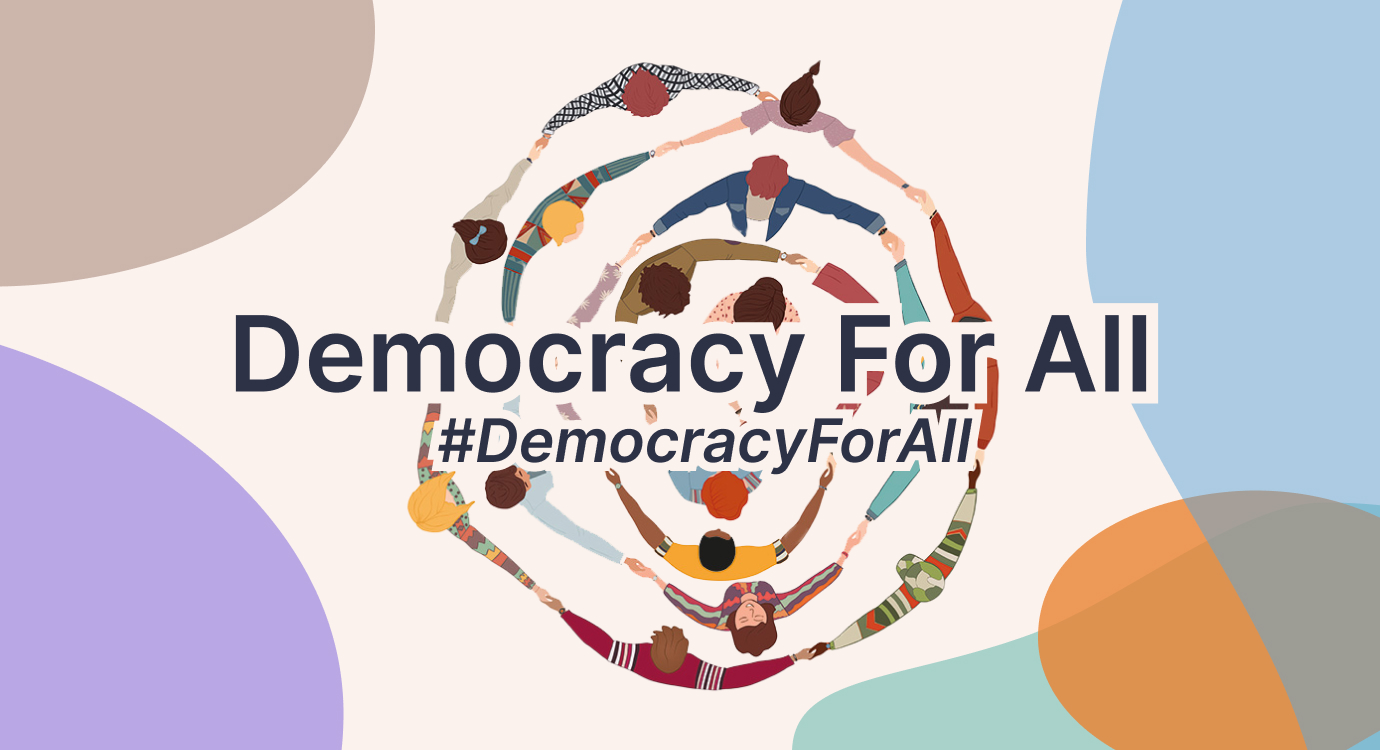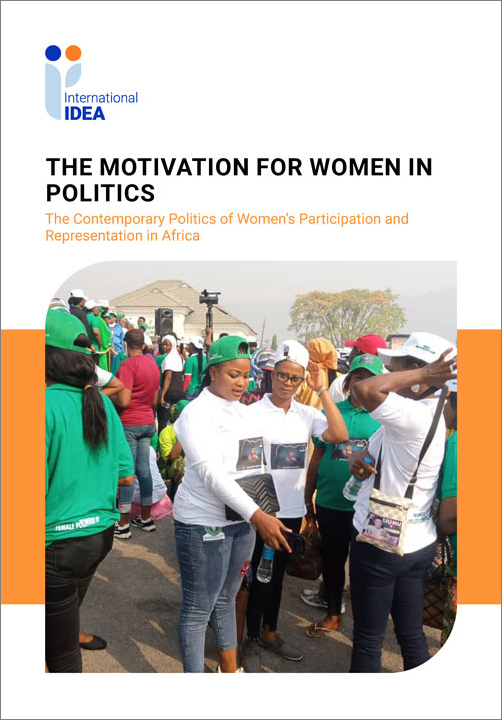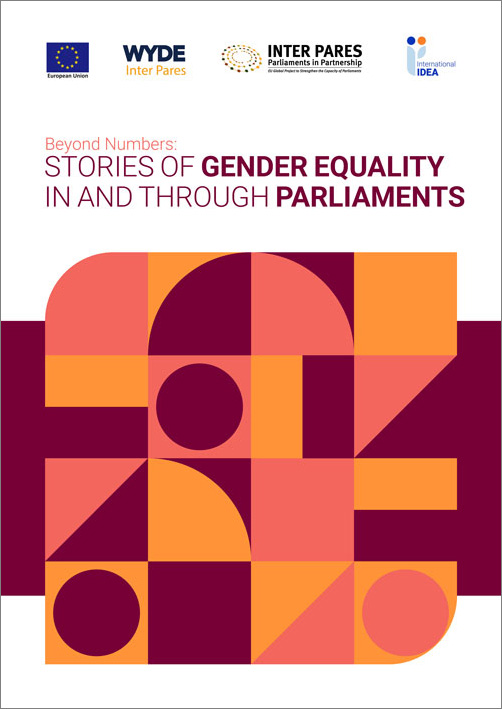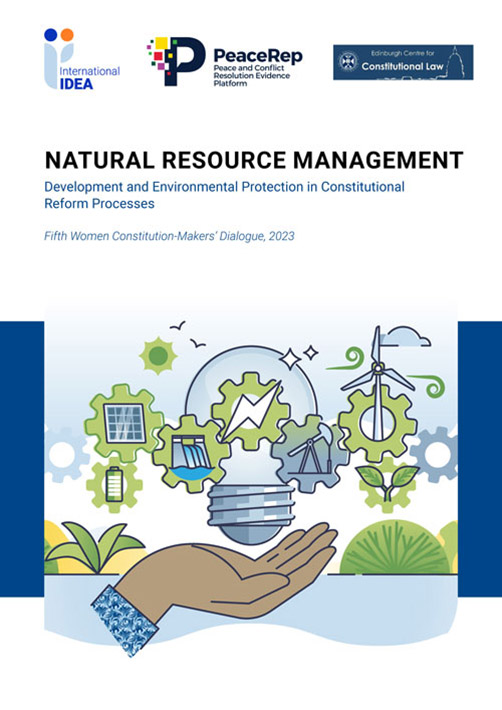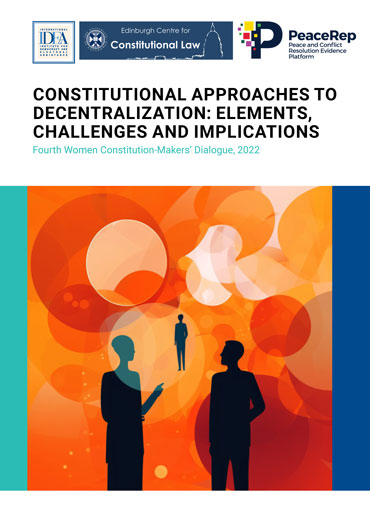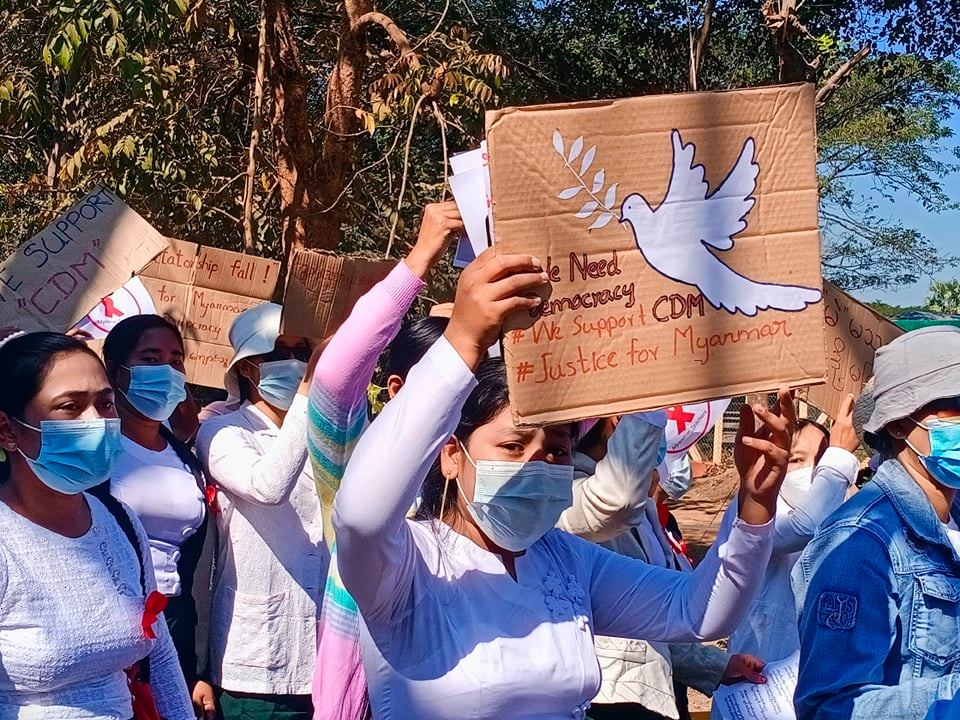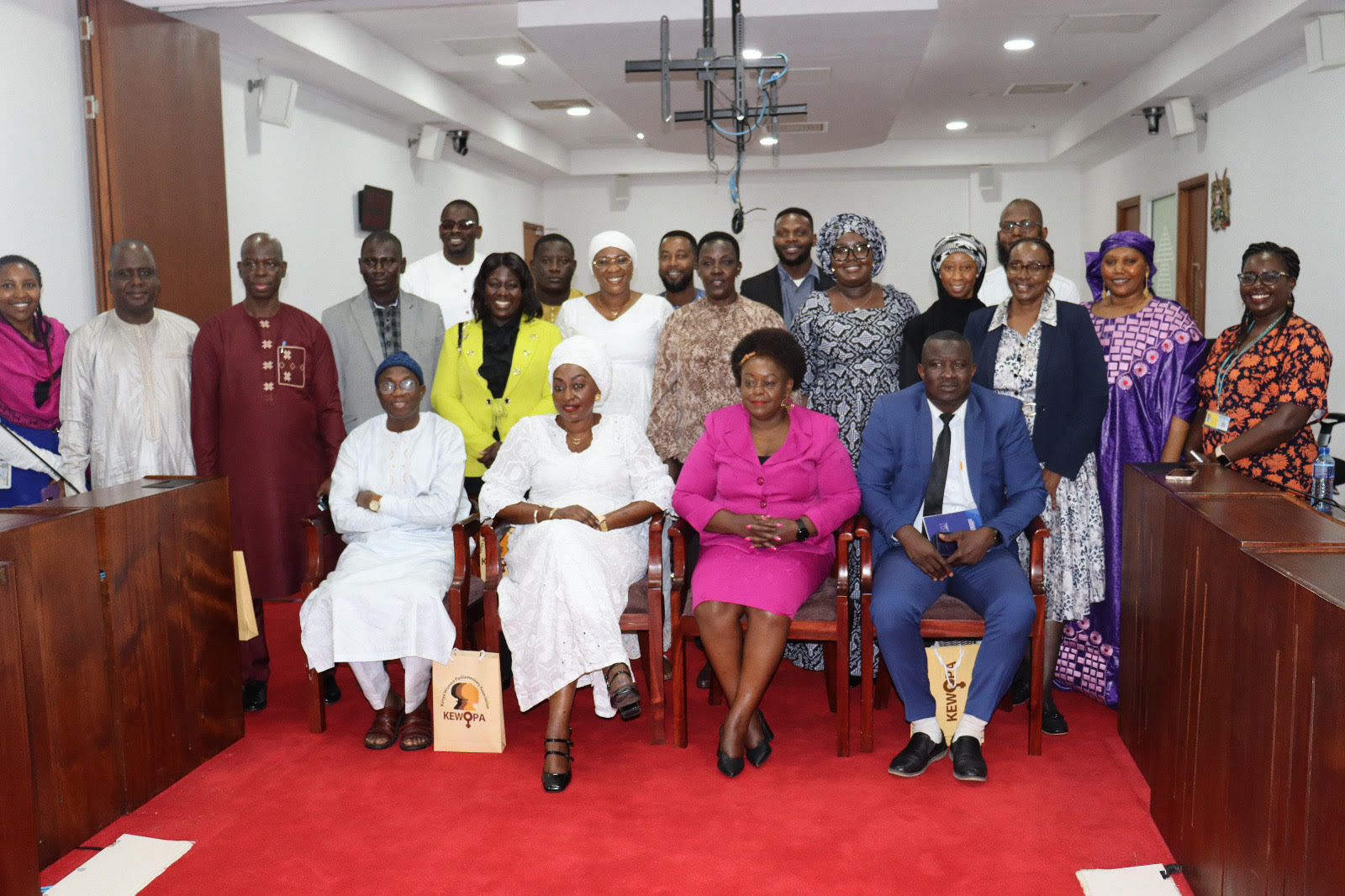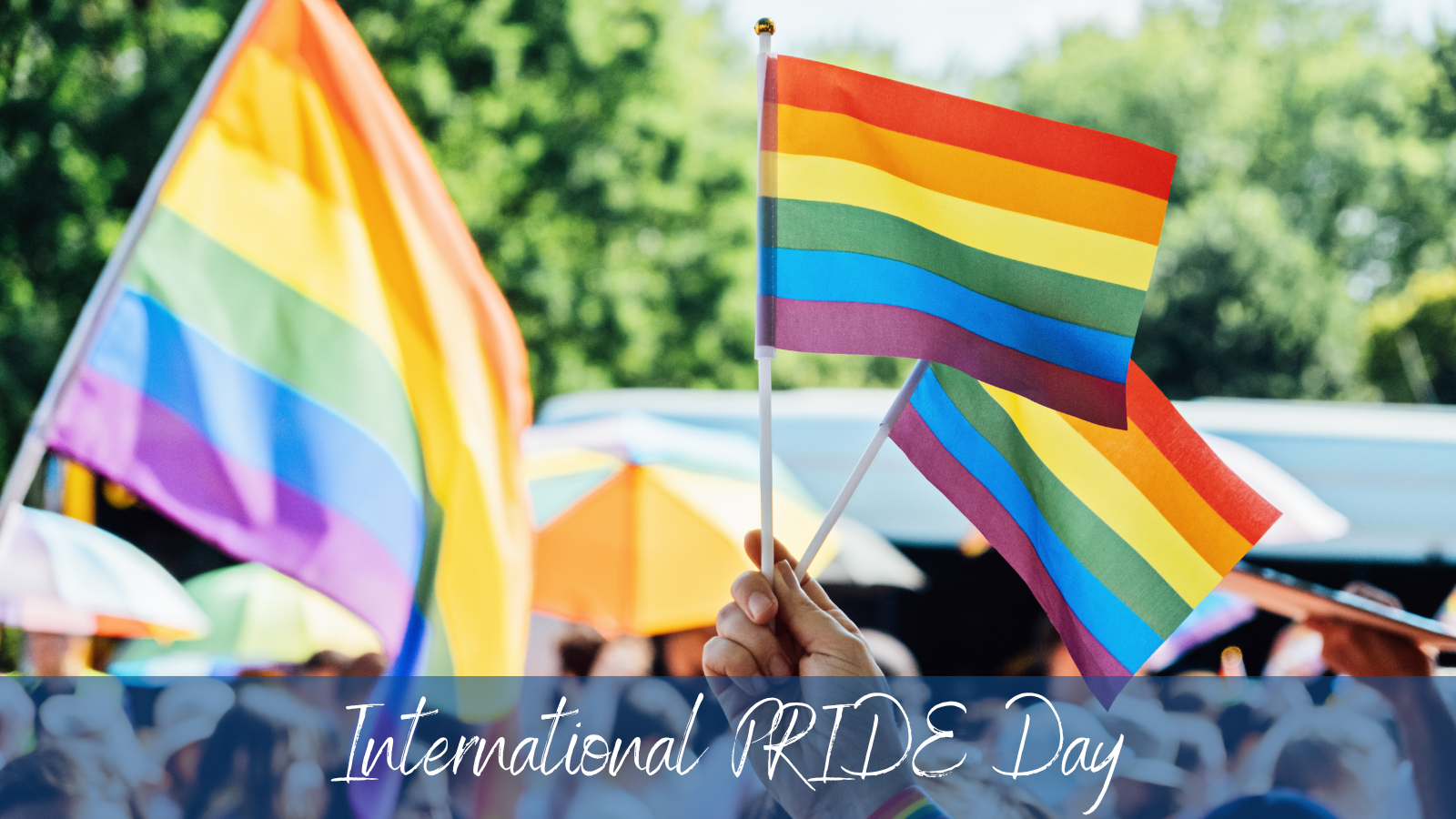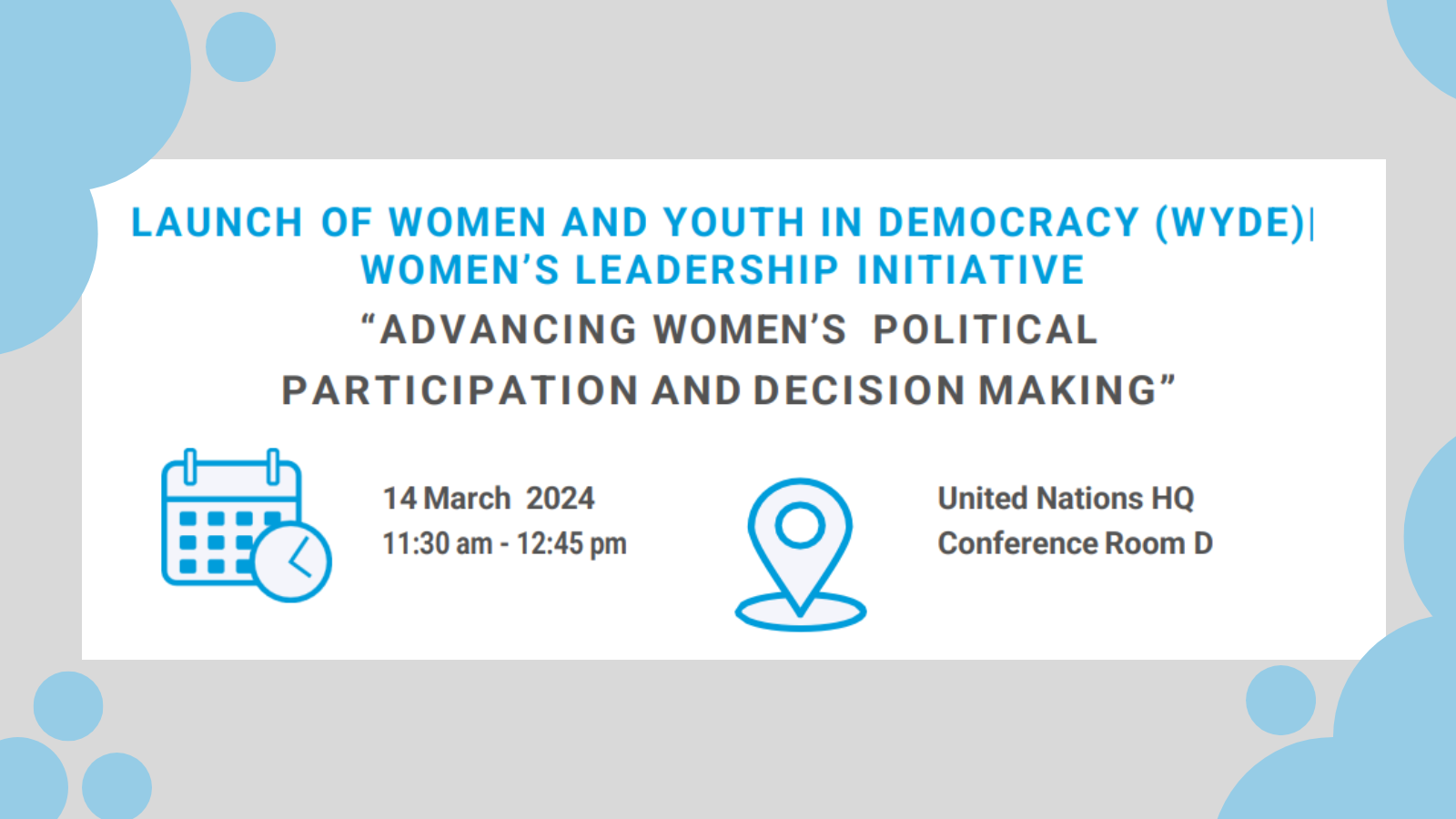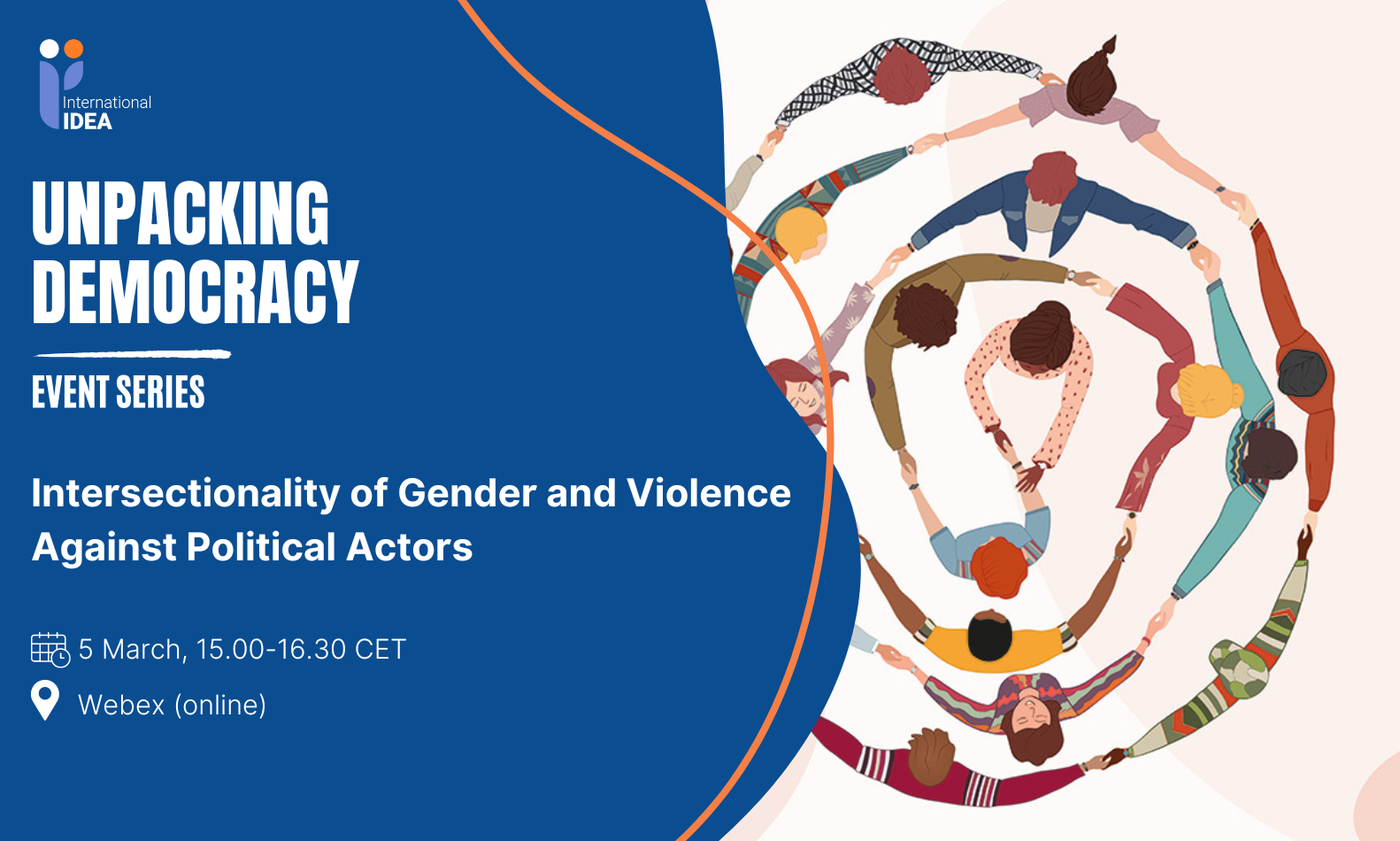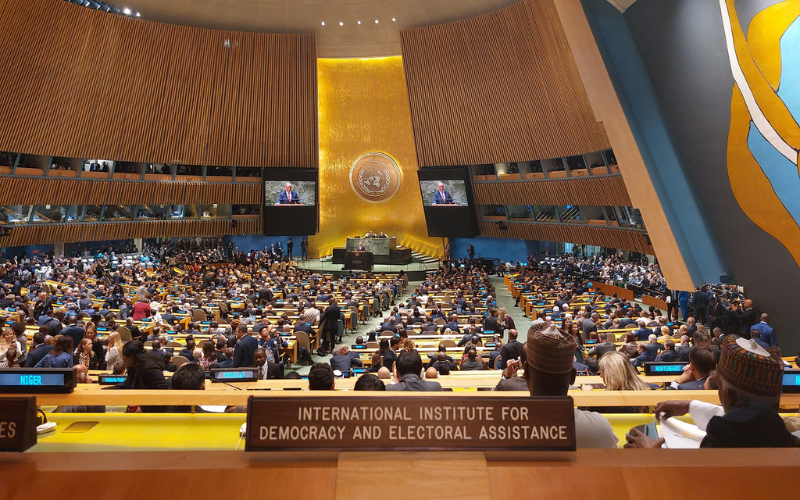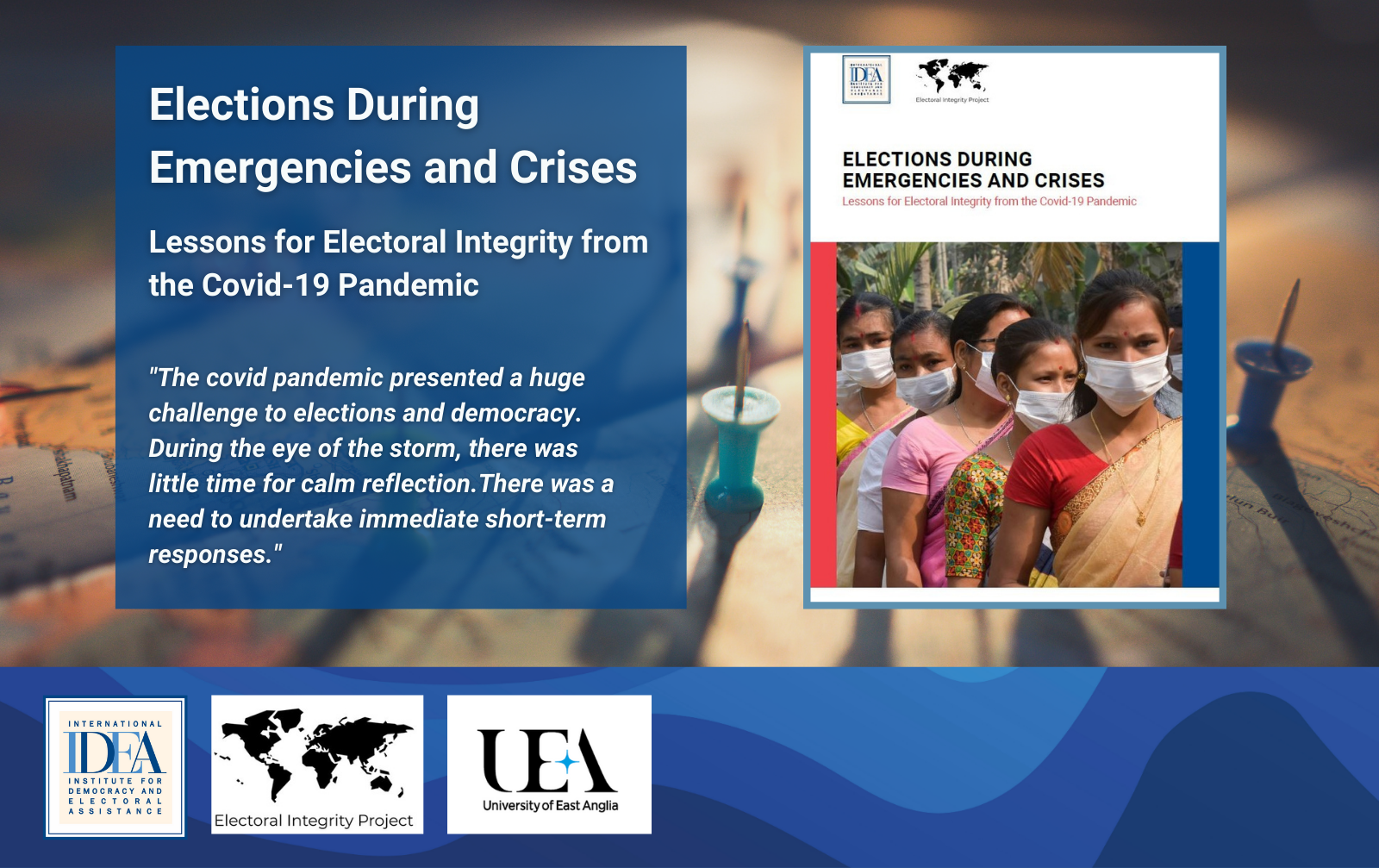Democracy and Gender Equality: The Role of the United Nations
Women’s participation is a central element of democracy, and the nature and degree of women’s participation is a key indicator of the quality of democratic culture.
On 4 May 2011, the United Nations Entity for Gender Equality and the Empowerment of Women, the United Nations Department of Political Affairs, the UN Development Programme and International IDEA convened a high level round table meeting in New York to examine the links between democracy and gender equality, and to explore the UN’s role in promoting both.
The round table gathered 150 policymakers, practitioners and academics working on various aspects of gender equality and democracy to review the UN’s work at the critical juncture between promoting gender equality and strengthening democracy worldwide. Their conversations revealed both challenges and opportunities for the UN in this area, based on lessons drawn from both research and practice.
The event was part of a series of policy-oriented events organized by the UN and International IDEA on the relationship between democracy building and the pillars of UN work.
Details
Author(s)
Contents
Key Recommendations
Executive Summary
Introduction
Key Themes in Democracy and Gender Equality
Panel One: Political Participation, Representation and Gender Equality
Panel Two: Impact of Traditional and New Social Media on Women’s Engagement with Democratic Processes
Panel Three: Strengthening Accountability to Women
Conclusions and Recommendations
Annexes
Give us feedback
Do you have a question or feedback about this publication? Leave us your feedback, and we’ll get back to you
Send feedbackDemocracy and Gender Equality: The Role of the United Nations
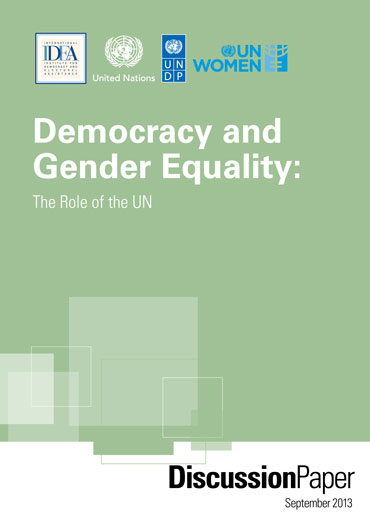
| Total views | 8320 |
|---|---|
| Downloads | 52 |
| Rating |
Authors
Give us feedback
Do you have a question or feedback about this publication? Leave us your feedback, and we’ll get back to you
Send feedback